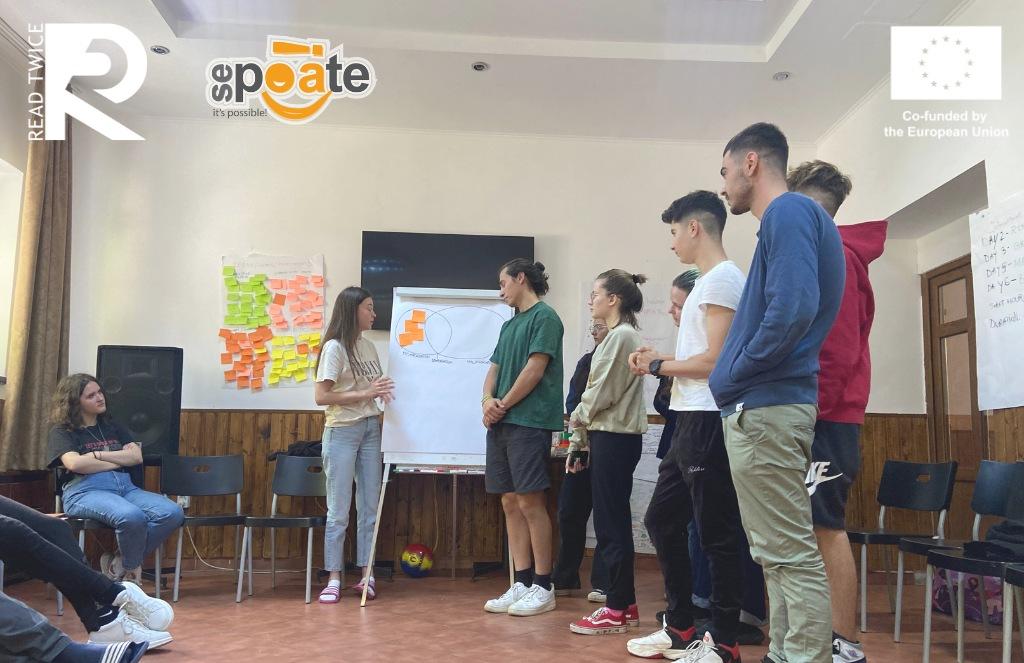Thessaloniki gets ready for its metro launch in November
The underground rapid transit lines have been under construction for almost two decades due to various project delays
 TheMayor.EU logo
TheMayor.EU logo 
The interactive approach of the trainings helped Se Poate engage local youth actively against disinformation, Source: Se Poate Association
Se Poate Association led the training sessions in several cities and engaged over 150 young people
The university stage of the Read Twice project has successfully wrapped up. This became a fact after Se Poate Association (Romania) became the third partner to conclude all of its university trainings, using the peer-to-peer educational approach.
Se Poate's events targeted youth groups just like Euro Advance (Bulgaria) and Echo Udruga (Croatia) associations, which held their local activities earlier this year.
The peer-to-peer approach involved university workshops led by young people who had participated in capacity-building events on fake news detection and resistance to the negative effects of disinformation. The capacity workshops took place in March and April, in Berlin in Porto, respectively.
Armed with knowledge, skills and many new connections, the young participants returned to their home countries to spread the newly acquired mastery.
Se Poate organised several local events across different locations: on 17 May in Sinaia, on 5 July in Rosieri de Vede, and on 4 and 21 August in Bucharest. These sessions had the goals of making participants more aware of the ways disinformation impacts democracy and equipping them with the skills to analyze online content critically to combat fake news.
The trainings comprised five informative and interactive sessions, including discussions, group activities, and insight from young media professionals.
Furthermore, the non-profit organisation conducted a comprehensive assessment of the need to have media literacy education in Romania, with regards to the current situation in the country. Se Poate produced a report that primarily focuses on the requirements of different target groups regarding media literacy education and their readiness to address the threat of disinformation.
This assessment involved an online survey among the target groups, stakeholder interviews and extensive research on the current best practices.
The needs assessments highlighted important findings about young people in Romania and fake news. For example:
READ TWICE is a project that aims to counter disinformation and limit the spread of fake news by enhancing citizens` skills to critically assess information, identify vicious and harmful media content and distinguish between facts and opinions, thus improving their media literacy competencies. The project has received funding under the Citizens, Equality, Rights and Values Programme (CERV) of the European Union, Grant Agreement 101081326.

The underground rapid transit lines have been under construction for almost two decades due to various project delays

Now you can get your wine in Talence by paying directly in Bitcoin

That’s because the state has to spend money on updating the railway infrastructure rather than subsidizing the cost of the popular pass

Rethinking renewable energy sources for the urban landscape

The examples, compiled by Beyond Fossil Fuels, can inform and inspire communities and entrepreneurs that still feel trepidation at the prospect of energy transition

Now you can get your wine in Talence by paying directly in Bitcoin

The 10th European Conference on Sustainable Cities and Towns (ESCT) sets the stage for stronger cooperation between the EU, national and local level to fast track Europe's transition to climate neutrality.

At least, that’s the promise made by the mayor of Paris, Anne Hidalgo

The underground rapid transit lines have been under construction for almost two decades due to various project delays

At least, that’s the promise made by the mayor of Paris, Anne Hidalgo

Hostal de Pinós is located in the geographical centre of the autonomous region

Despite its church-y name, the district has long been known as the hangout spot for the artsy crowds

Urban dwellers across the EU are having a say in making their surroundings friendlier to people and the environment.

Forests in the EU can help green the European construction industry and bolster a continent-wide push for architectural improvements.

Apply by 10 November and do your part for the transformation of European public spaces

An interview with the Mayor of a Polish city that seeks to reinvent itself

An interview with the newly elected ICLEI President and Mayor of Malmö

A conversation with the Mayor of Lisbon about the spirit and dimensions of innovation present in the Portuguese capital














